We look at demonetisation as an opportunity for a better future: MK Anand
Times Network has launched the second phase of its campaign – ‘Remonetise India – Invest in the Nation’. While the first phase included activities like Telethon, Go-Cashless Rally and Sahayata Camps, the second phase of the campaign urges people to ‘Help your Help’.
The demonetisation drive, announced by Prime Minister Narendra Modi on November 8, 2016, pulled out of circulation 85 per cent of India’s currency. Out of the Rs 15 lakh crore that was demonetised, only about 50 per cent has been restored. This obviously has had its impact on economic activity and day to day lives of Indians. In a time when the country is coming to terms with one of the most revolutionary economic reforms that has taken place in human history, Times Network launched a campaign, ‘Remonetise India – Invest in the Nation’, on January 4, 2017.
Commenting on the launch, MK Anand, MD and CEO, Times Network, said, “Times Network reaches out to about 4.5 crore Urban English viewers every week. This is the largest base of premium, influential audience in the country. At a time when the nation is attempting to leapfrog economically, we believe that Regulation, Infrastructure and Technology are not enough to jumpstart socio-economic change. Behavioural and cultural transformation is as important, if not more. This is where a uniquely positioned Media Group like Times Network can help. Through the ‘Remonetise India’ campaign, we aim to focus on making changes in every-day behaviour of Urban Indians so that the benefits of this disruptive reform (Demonetisation) flow in the right manner.”
He added, “One of the pledges under Remonetise India is to help others around us to go digital and benefit from the new economy. The Sahayata Camps that we have started has already resulted in the opening of thousands of bank accounts and more and more young people taking the Remonetise India pledge. The second phase of the campaign, ‘Help your Help’, is a call to capable urban citizens to help and aid others in achieving financial inclusion.”
Publicis Ambience and Director Karthik Bhat have put together the concept in a TVC that will be promoted across the network channels and additionally in 300+ multiplexes, supported by a digital contest where the viewers will be gratified with goodies to promote participation.
Watch the TVC:
https://www.youtube.com/watch?v=UasOcHXp-T8
In the first phase of the campaign, a telethon was organised that witnessed the participation of key influencers, policy makers and opinion leaders like Nirmala Sitharaman (MoS (Independent Charge), Ministry of Commerce & Industry Minister for Commerce), Amitabh Kant (CEO, Niti Ayog) and Narayana Murthy (Founder – Infosys), who answered questions on the way forward for the Remonetisation Movement. B-town celebrities like Sonam and Anil Kapoor, R Madhavan, Shilpa Shetty, Sonu Sood and Manoj Bajpayee supported this initiative and came together to be the agents of change to help bring India’s economy back on track.
Additionally, the network organised ‘Sahayta Camps’ which were supported by actor Taapsee Pannu, who encouraged people to get Pan Cards, Aadhaar Cards and open bank accounts (Jan Dhan Yojana Accounts) for the development of Digital India. Finally, the Go-Cashless Rally took place to drive awareness about digital transactions and save cash for those who can’t do without cash. As part of this initiative, the network will further organise these activities across the length and breadth of the country to take the movement forward.
Client Speak
In conversation with Adgully, MK Anand, MD and CEO, Times Network, sheds more light on the entire concept behind ‘Remonetise India – Invest in the Nation’.
Please tell us about the conceptualisation of the Remonetise India initiative. What made Times Network associate with this concept?
Besides delivering our great products in the news and English entertainment space and holding on to that leadership, we also wanted to go one step forward – instead of looking at each of our products as pillars, we wanted to put a canopy to it and make it a building, and that is what Times Network is all about. We were earlier addressed as Times Now or Movies Now, but now we address ourselves as Times Network. Advertisers and trade at large have come to realise that we as a combined entity made sense – our strength, our influence impact, spare inventory, creativity and marketing abilities to pick up topics of interest. The advertiser uses us as a 4-and-a-half-crore base to launch something. In trade media, we call ourselves Times Network Gateway to Influencers. We influence the influencer and by doing so, can we not pick up a subject that we can influence the influencer to make an impact on India and be a grand scale activity.
India is no longer what it was like in the 70’s or 80’s. Today’s India wants to catch up with the world and go forward. India has the potential of doing much better and this urge is spilling on to political movements. Capturing all of it, we believe that a media network such as ours has a very unique audience. We are not looking at just the atta, dal and household kind of an audience; we are talking to the intelligent thinkers here and people who run this country. We believe we have demonstrated a lot of real impact. There is a strategic intent to create an impact at a national level. The topics that we take up, the subjects and the area depends upon what we stand for; we stand for being able to engage, inform and entertain leaders of the country. We want to inspire these leaders to lead the country in the right direction.
Thus, we looked at demonetisation as an opportunity as it has got a lot of future benefits, even though the present is a bit messy – be it losing jobs or livelihoods or the inability to cope. Our viewers are the lucky few in the country who can cope without cash and we can tell them to use less cash so that the cash they don’t use can be available for other people. We pledged to use less cash to bring more activity in cities to bring more activity in the formal economy and to make it available for the needy in the villages. Teaching your nearby vegetable vendor to use e-wallets, open bank accounts for your staff. While taking such small steps, financial inclusion happens and it has got a huge future benefit. English viewers are the ones who could do best and it was natural for us to pick up this topic.
Demonetisation is not about a political guy doing a political thing. If you want to get out of it in a good place, you need to do three things:
- Don’t panic and don’t stop spending
- Use less cash
- Help and educate others to use less cash and more use of e-wallet
By doing these three things, the tax compliance will go up and most importantly, we will set free so much of cash into the banking system.
What has been the response to the first phase of the Remonetise India initiative?
It has been great. We didn’t not go into mass media to the extent that we could have. It was conceptualised only in the third week of December 2016, whereas a massive activity like this takes at least three months of planning. We launched the initiative on the 15th day of the conceptualisation of the initiative. Now, the TVC for the second phase has been launched on February 15. Over the next two months, you will see it go more into mass media and then we can say how it has really helped the people.
What are the initiatives and activities planned as part of Phased 2 of Remonetise India?
A large part of the ‘Sahayta Camps’ are being set up now. In the last 20 days, 25 camps have conducted, with at least 8-10 more camps planned. The next level will now be in Jammu and Darjeeling. By the end of this month there will be an ‘ATM Bandh’ activity. We are looking at content features from the editorial side to highlight how careless behaviour is leading to all those ill practices returning already.
What kind of growth is Times Network targeting this year?
The fact that we have a depression this year means next year will be good. Fortunately, our growth rate has been high enough; despite demonetisation we will be growing about 7 per cent to 10 per cent this year. But earlier we were growing at about 20-22 per cent. I can’t say about next year, but we are looking for at least 15 per cent.
Agency Speak
Publicis Ambience is the agency behind the campaign. Bobby Pawar, MD & CCO, Publicis South Asia, speaks with Adgully on the thought process behind the campaign, the challenges ahead and more.
Please elaborate on the thought process behind the campaign.
Immediately after demonetisation was announced, people were saying, “It’s our money, how can somebody just take it away?’ The deeper impact will be seen over the next two quarters; because most of the transactions are in cash, business is going to get affected, raises will get affected, employment will get affected, and people might start losing their jobs. We can keep talking about it or do something to change this scenario. That’s where this notion for remonetising India comes from. Let’s first rebuild faith in our economy and make it stronger than what it was before by making sure that we use less cash, because using cash is a problem. No doubt cash is convenient, but it is a problem because it is non-trackable. The cash in your wallet is completely idle, it’s out of the economy till it gets used. But if it is in the bank, it gets used every second and creates economic activity. So let’s start by sewing in social, doing things on ground and then take it to mass media. What it lets us do is read and react.
What were the challenges while conceptualising this campaign?
One of the biggest challenges is apathy. Most people would think that it is not a problem of their creation. Hence, to get people beyond themselves is a tough task, and if you move a few thousand it would be a big thing. Dozens of people have been given Aadhar Cards, Pan Cards and bank accounts because of the activation camps. Remonetise India is not so much about advertising as it is about changing the mindset of the people. Through this we aim to bring in more maids, istriwalas, dhobis, etc., into the formal economy. If they have a Pan Card today, they can have a bank account tomorrow and a Paytm day after. If they begin to use the debit card received from the bank, then it would be a big thing. It’s these fundamental changes that the campaign is looking at, but it will take a lot of time and effort. Other brands are also talking about it, because a formal economy helps all good businesses, good employees, everyone. Thus, the salaried people won’t be carrying this country anymore with their taxes. That’s the most unfair thing that has been going on out there.
How did you come up with the #HelpyourHelp concept?
When you look at the people who help us with our chores, such as maids, dhobis, doodhwalas, etc., a lot of them don’t even have birth certificates let alone Pan Card or other documents. They have little or no education, nor any knowledge of how to get official documents. Hence, they are going to need a lot of help in the move to go cashless – be it getting an Adhaar Card or Pan Card or opening a bank account. Since you are in a position to help them and you know them on a personal basis, you could surely do that much for them. It also makes your life that much easier because you won’t need to dig out cash to pay them, you could give them a cheque or make digital payment.
What motivated you for this campaign?
Working with Times Network itself is motivation is enough. It’s an opportunity to do something for the society and that’s a privilege, it goes beyond selling something. It is a difficult subject to take on because you are talking about changing people’s deep-seated habits. The biggest hypocrisy that’s going on right now is that while everybody says that we must stand while the National Anthem is playing, but there are people who don’t pay their taxes. It’s not enough to say ‘Mera Desh Mahaan’, we have to work towards it. These things need to change and media can be such a strong voice. It’s a bold move by MK Anand and Times Network, who are saying that we must bring out this change and move the society forward.
How difficult will it be to measure the outcome of the campaign?
The activation and social engagement measures are in place. MK Anand is being modest. Demonetisation has been trending on social media quite a bit and it has had its clap back on it, but that’s precisely why we should do it. That’s the mindset we need to change. If we don’t help ourselves nobody else will.



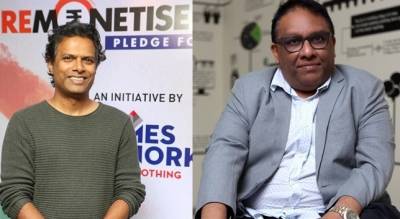

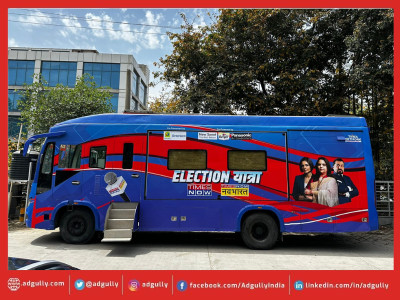
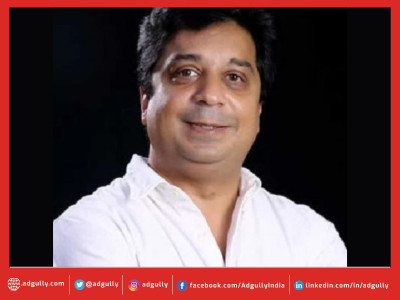
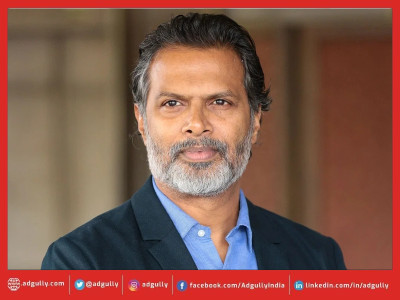
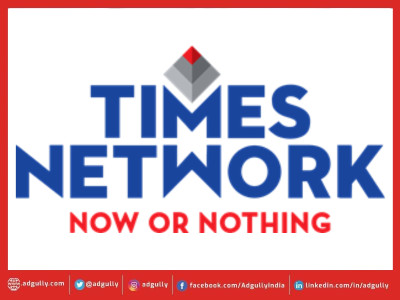
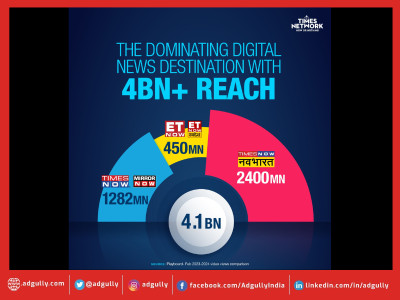


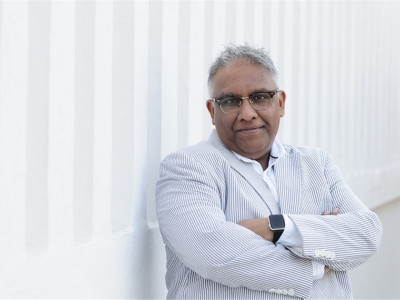
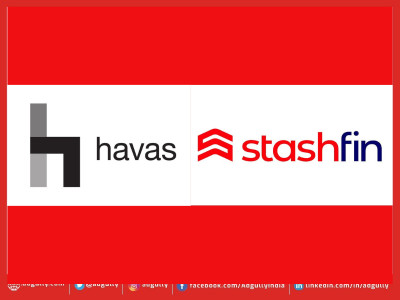





Share
Facebook
YouTube
Tweet
Twitter
LinkedIn